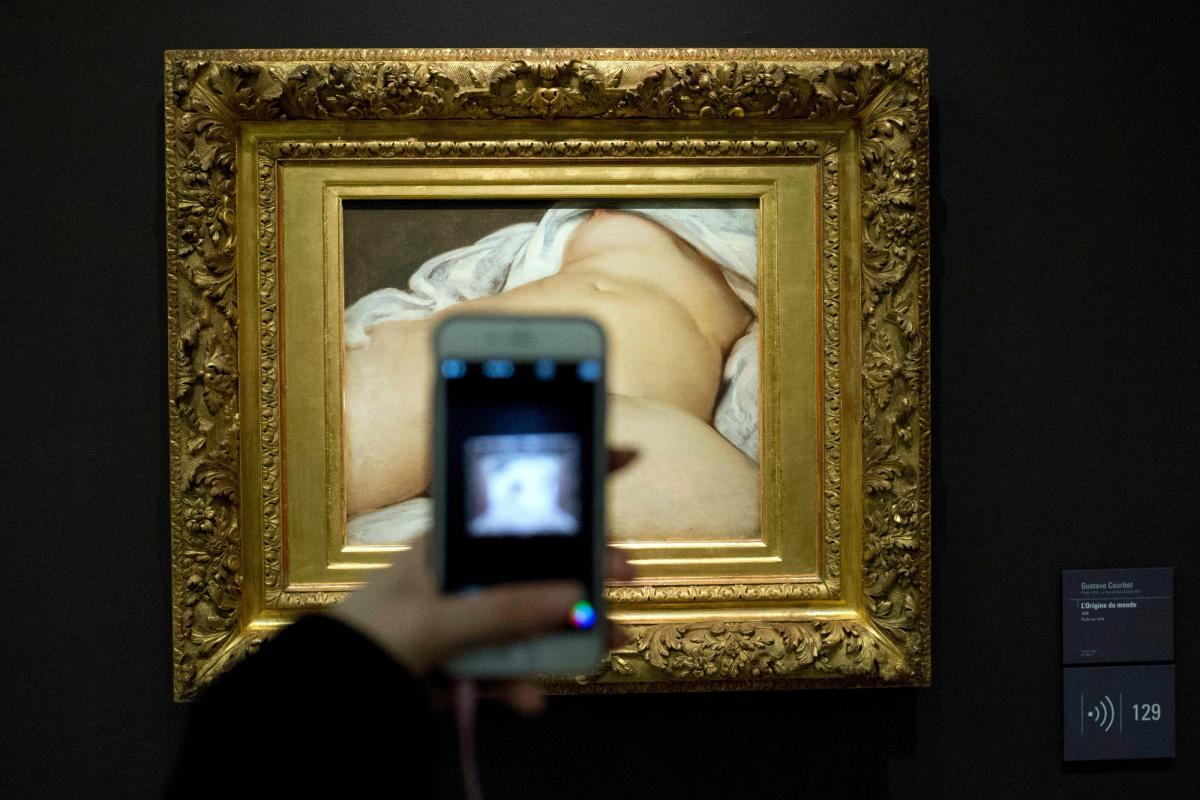The painting L’Origine du monde (The Origin of the World, 1866)—an explicit full-frontal female nude by the French painter Gustave Courbet—has been vandalised by protestors who daubed the work with the words “Me Too”.
The work, which is glazed, is on show at the Centre Pompidou-Metz in northern France in the exhibition Lacan, The Exhibition: When Art Meets Psychoanalysis (until 27 May), which explores the theories of the French psychoanalyst Jacques Lacan who owned the infamous Courbet piece. The Courbet work is on loan to the Centre Pompidou-Metz from the Musée d’Orsay in Paris.
A spokesperson for the Centre Pompidou-Metz confirmed that Courbet’s work had been defaced, adding that five works in total in the show were covered with the words “Me Too”. An embroidered work by the French artist Annette Messager, I Think Therefore I Suck (1991), was also removed from the exhibition.
The Luxembourg-born artist Deborah De Robertis posted a video on Vimeo— entitled On ne sépare pas la femme de l’artiste (“the woman cannot be separated from the artist”)—showing the protest. In an accompanying statement, she says she wants to highlight the “misogynistic divide” in the art world.
In the video, two women are seen writing “Me Too” on a number of works in the Centre Pompidou-Metz show including the Courbet work and De Robertis’s own photograph Mirror of Origin. They chant “Me Too” and are then escorted away by security staff (it is unclear if they have been charged). The mayor of Metz, Francois Grosdidier, reportedly criticised the protest, calling it “a new attack on culture, this time by fanatic feminists”.
De Robertis adds in her statement: “I call on all women, with or without vulvas, all intersex, trans and non-binary people, and all underrepresented people—whether artists, assistants or interns in the art world—to dare to express yourself.” In 2016 De Robertis lay down naked in front of Edouard Manet’s painting Olympia (1863) at the Musée d’Orsay wearing a portable camera.
Meanwhile, climate activists scattered orange powder around the Galerie des Glaces at the Palace of Versailles outside Paris on 4 May. The protestors, from the Riposte Alimentaire group, said in an Instagram post: “Through this action, Riposte Alimentaire wishes to raise awareness about growing inequalities, allowing a privileged minority to monopolise part of the resources, while the majority of citizens collect the crumbs.”
They add that the Agricultural Guidance Law, which will be debated from 14 May in France’s National Assembly, is the “perfect example” of this inequality, adding: “This bill promotes an agricultural model at odds with our vision of sustainable food social security.” Earlier this year the group threw pumpkin soup at the Mona Lisa during a protest at the Louvre.


